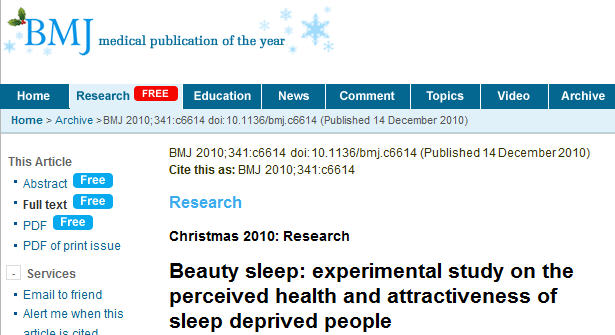Beauty Sleep
….Lending the first scientific support to the concept of “beauty sleep”
(BMJ 2010;341:c6614)
Conclusion Our findings show that sleep deprived people appear less healthy, less attractive, and more tired compared with when they are well rested. This suggests that humans are sensitive to sleep related facial cues, with potential implications for social and clinical judgments and behaviour. Studies are warranted for understanding how these effects may affect clinical decision making and can add knowledge with direct implications in a medical context.

What is already known on this topic
Short or disturbed sleep and fatigue constitute major risk factors for health and safety
Complaints of short or disturbed sleep are common among patients seeking healthcare
The human face is the main source of information for social signalling

What this study adds
The facial cues of sleep deprived people are sufficient for others to judge them as more tired, less healthy, and less attractive, lending the first scientific support to the concept of “beauty sleep”
